Explore the Best AI Image Gallery
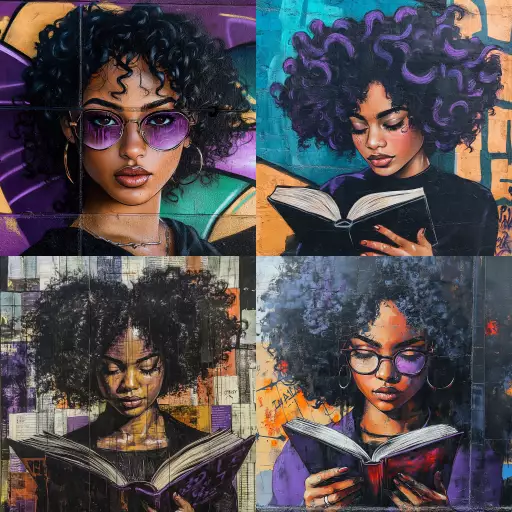
AI-Powered Product Photography: A New Lens on Creativity
The world of product photography is undergoing a rapid transformation, driven by the advent of artificial intelligence (AI). This powerful technology is revolutionizing how products are captured and presented, offering a range of benefits that span efficiency, quality, and creative expression. From automating mundane tasks to generating stunning visuals with unprecedented ease, AI is reshaping the landscape of product photography and ushering in a new era of possibilities.
Enhancing Efficiency and Productivity
AI-powered tools are streamlining various aspects of product photography, freeing up time and resources for more creative pursuits. Heres how:
- Automated Background Removal: AI algorithms can intelligently identify and remove backgrounds from images, saving photographers hours of tedious editing.
- Object Detection and Tracking: Cameras equipped with AI can accurately detect and track moving objects, ensuring sharp and focused images even in dynamic situations. This is particularly useful for photographing products that require movement or demonstration, such as jewelry or clothing.
- Image Optimization: AI algorithms can analyze images and automatically adjust parameters such as exposure, contrast, and color balance for optimal results. This ensures consistent quality across a large volume of product shots.
Unleashing Creative Potential
Beyond efficiency gains, AI empowers photographers to explore new creative avenues:
- Style Transfer: AI can apply the artistic style of one image to another, enabling photographers to create unique and visually captivating product shots. Imagine a classic painting style applied to a modern smartphone or a vintage photograph aesthetic for a retro clothing line.
- Generative Design: AI algorithms can generate entirely new product images based on specific parameters or concepts. This opens up possibilities for conceptual photography, showcasing products in imaginative and unexpected settings.
- 3D Product Visualization: AI-powered tools can create interactive 3D models of products from photographs, allowing customers to explore them from all angles and customize their appearance. This immersive experience enhances customer engagement and understanding.
Ethical Considerations
As with any powerful technology, the integration of AI in product photography raises ethical considerations:
- Bias and Representation: AI algorithms are trained on vast datasets, which may contain inherent biases that reflect societal stereotypes. Its crucial to ensure that AI-generated images represent diverse populations accurately and avoid perpetuating harmful representations.
- Transparency and Accountability: The decision-making processes of AI algorithms can be complex and opaque. Its important to strive for transparency in how AI is used in product photography and establish clear lines of accountability for any potential biases or errors.
- Authenticity and Manipulation: AIs ability to generate realistic images raises concerns about the authenticity of online content. Its essential to develop ethical guidelines and safeguards to prevent the misuse of AI for creating misleading or deceptive product representations.
The Future of Product Photography
The convergence of AI and product photography is just beginning. We can expect continued advancements that will further blur the lines between reality and virtuality:
- Hyper-Personalization: AI will enable brands to create personalized product images tailored to individual customer preferences, enhancing engagement and conversion rates.
- Augmented Reality (AR) Integration: AI-powered AR experiences will allow customers to virtually try on products or visualize them in their own environments, revolutionizing the shopping experience.
- AI-Assisted Storytelling: Product photography will evolve into a more dynamic and interactive medium, leveraging AI to tell compelling stories and create immersive brand narratives.
As AI technology continues to evolve, its impact on product photography will be profound. By embracing these advancements responsibly and ethically, brands can harness the power of AI to elevate their creative storytelling, enhance customer experiences, and drive business growth.

](https://images.ai-img.art/thumbnails/150/aed4d771a0a5b63bed28f6e7183dd4614c5e3e3586d300c8d879ccbb37dbfb4e.webp)




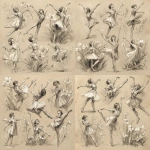

](https://images.ai-img.art/thumbnails/150/da89993919887fcf2c84af5ec12f2ac997ad0f67c8bf00fecd67ba06a1b3dc49.webp)










](https://images.ai-img.art/thumbnails/150/cf8299cc184c859eff89d17514689e19c7994ad29256a58ad77fa0f7218e2cff.webp)




](https://images.ai-img.art/thumbnails/150/476665d1452e44d38d5b4fbf5fab4389a6131d55b7bfe8a41d7f65f66b5a9310.webp)


](https://images.ai-img.art/thumbnails/150/915b5e50ce61f6219cb8f764d89e2efcb8ad3a9ebd09e0670ae7dc0e2c99a8bd.webp)








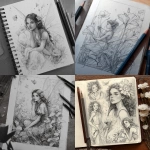







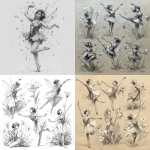
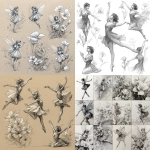



](https://images.ai-img.art/thumbnails/150/78b567a3483191dd52f3d16038b5a926e03e4066d5b301cfff023fb91a962e67.webp)